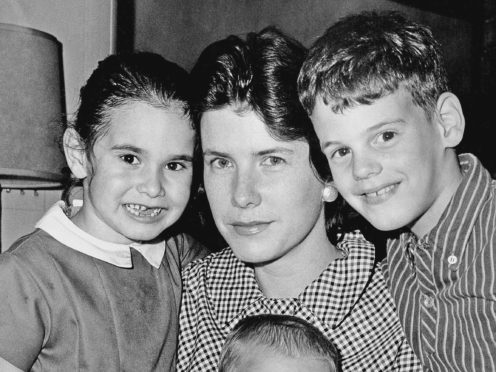Shirley Ann Grau, a Pulitzer Prize-winning author whose stories and novels told of both the dark secrets and beauty of the Deep South, has died at the age of 91.
Her daughter Nora McAlister said on Wednesday that Grau died on Monday in a memory care facility of complications from a stroke.
She said the family is not planning a funeral or memorial service for her.
Grau won the 1965 Pulitzer Prize for her fourth book The Keepers Of The House.
The book drew critical praise but also threatening phone calls for its depiction of a long romance between a wealthy white man and his black housekeeper in rural Alabama.
Grau said Ku Klux Klansmen, angry over the book amid the heat of the civil rights movement, tried to burn a cross on her yard in Metairie, a New Orleans suburb.
Her six novels and four short story collections were all set in the Deep South, from New Orleans to north Louisiana and Alabama.
Grau was born in New Orleans and grew up in Mobile, Alabama, the daughter of a physician.
In a 2003 interview, she recalled that she was fascinated as a child with Greek and Latin, but also loved roaming the woods.
Critics would later note in her fiction the meticulous descriptions of flowers, plants and trees.
Grau attended a private high school in New Orleans, then Tulane University’s Newcomb College. She said she pondered careers as a classics professor or lawyer, but found sexism too pervasive in academia and the law.
She settled on writing instead, and her first book, The Black Prince And Other Stories, was published in 1954, when she was 26.
Critics often pointed to the short stories for praise, and the author said she agreed with the assessment.
“The only unfortunate thing about Grau’s stories is precisely that they are short — each is a glimpse of landscapes both interior and exterior that ends too soon,” said a brief 2003 New York Times review of Collected Stories.
Grau said she had little interest in what was written about her work and grew tired of both the label “Southern woman writer” and the frequent comparisons of her work to that of fellow Southerner Flannery O’Connor.
Many of Grau’s stories deal with sudden, unexplained events and their aftermath.
The Hunter tells of what happens to a woman who miraculously survives a small plane crash.
The Man Outdoors is about what happens to a family when the father moves out, then disappears completely, after having a vision that is never explained.
Grau’s husband James Kern Feibleman, a businessman and chairman of Tulane’s philosophy department, died in 1987 aged 83.
